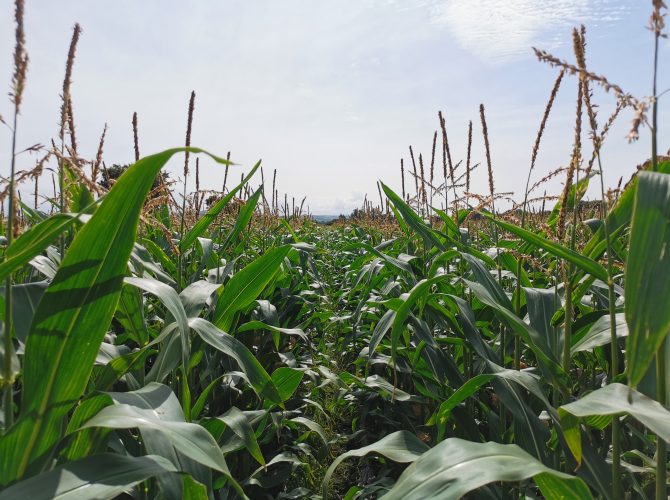Reducing Mycotoxins in Maize Silage.
10th September 2021

Maize silage is an excellent feed for both dairy and beef cattle due to the starch, energy and intake characteristics. With crops almost ready to harvest and a lot of money already invested in the crop it is vital to get the harvest and ensiling right to get the best return on your investment.
Maize should ideally be harvested when the dry matter of the whole crop is between 28-35%. This can be tested by chopping up a whole plant, mixing it up and taking a small sample and testing the DM either through a lab or using an oven or microwave. Another guide is to use the “milk line test” when the line separating the liquid and solid part of the grain, this is known as the milk line and should be 1/3 to 1/2 way up the grain and when it reaches this stage the crop is ready to harvest. The grain will be at the doughy to hard dough stage and will have a good balance between starch and digestibility.
Maize silage can be prone to losses from an inefficient fermentation and dry matter losses can be as high as 20-30% from field to feed bunker. Maize can be particularly prone to heating and this results in a loss of energy and the growth of moulds and associated mycotoxins which can cause health issues in the animal. A high quality inoculant such as Magniva Platinum or Magniva Platinum Elite are key to achieving successful and stable fermentation in maize silage and allow you to achieve the harvested crops potential. The hetro-fermentative bacteria in the Magniva platinum range are proven to improve the stability of the clamp allowing it to be opened early, prevent secondary fermentation and reduce heating and the generation of mycotoxins.
The generation of heat in silage requires a huge amount of energy and this energy is then wasted resulting in less milk or meat.
Trial data from the Miner institute, New York, revealed Magniva treated silage showed a reduction in the production of mycotoxins, supporting palatability and reducing a potential threat to cow health.
To find out more information about treating maize silage and additive options contact your local Fane Valley Agronomy & Forage Specialist or call 028 9261 0485.

